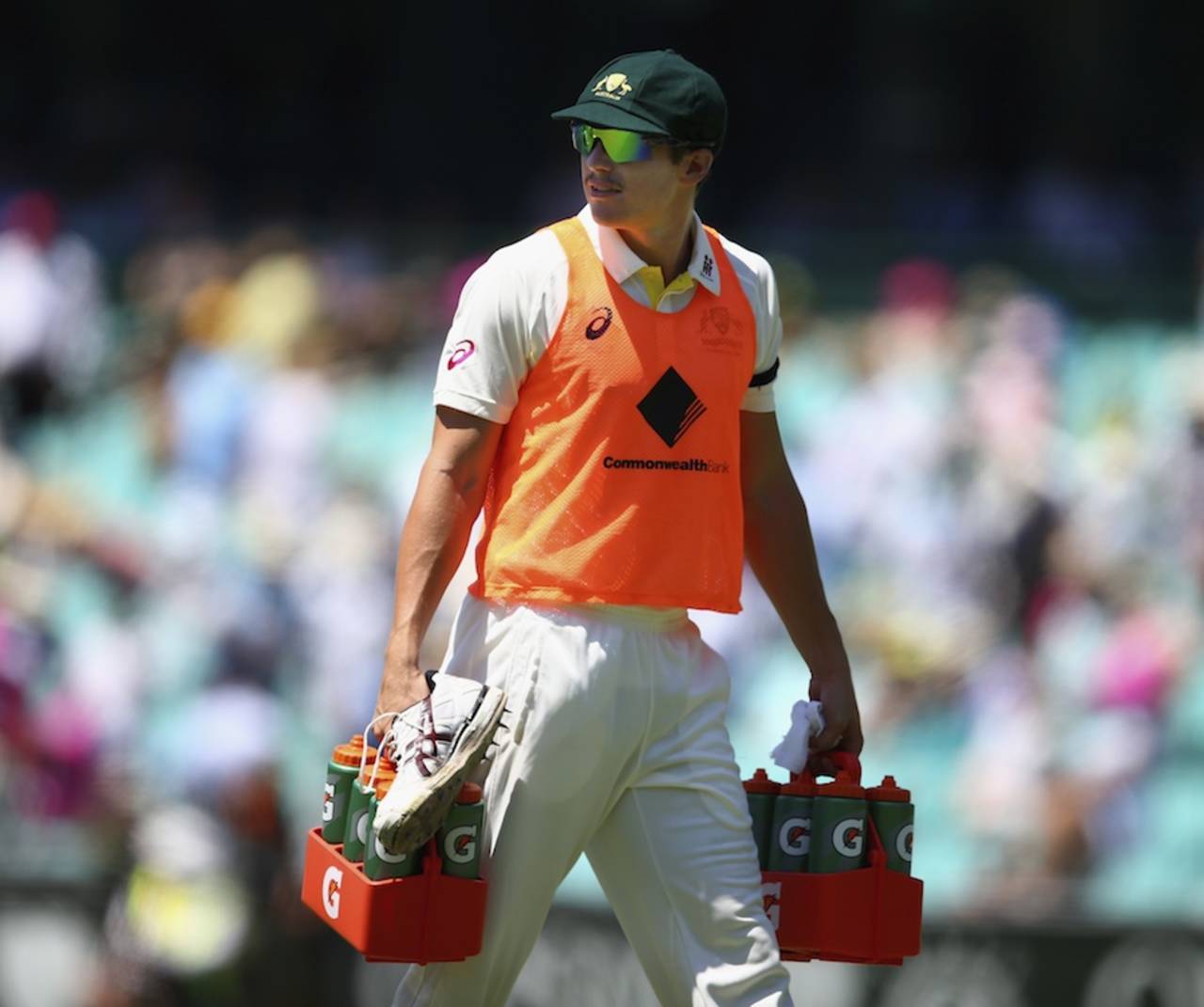World cricket needs to take a long, hard look at dealing with the ongoing issue of slow over rates. Is the ICC policy on this score working? In an environment where the players are getting truckloads of money in all forms of the game, does a fine and a threat of a brief suspension provide a necessary deterrent?
No.
Recently George Bailey, stand-in captain for the injured Michael Clarke in Australia's ODI squad, was
suspended and fined 20% of his match fee for his team failing to complete the 50 overs in the required three and a half hours. In the
match against India, Australia's overs ended at 6.16pm, 26 minutes later than the scheduled finish time of 5.50pm. Bailey's suspension came in the wake of his having transgressed similarly in a match against South Africa in November.
A fine and a brief suspension do not hurt these players. Those who play all forms of the game might well welcome the respite of a match off here and there.
While captains and players contribute to slow over rates at times in the ODI and T20 formats, the real concern is in Test matches. On occasion during the four Tests between Australia and India, slow over rates came to the fore due to sluggish changes between overs, and the amount of time taken to set fields.
However, the worst offence here must be the ludicrous spectacle of men dressed in whites under high-visibility vests charging out on to the ground with water every few minutes. Even if a wicket falls in the first over of the match, out rush these pseudo council workers, handing players a bottle of water.
It is important to keep up your liquids and be hydrated, but this practice of people rushing on to the ground every five minutes should be stopped. Umpires don't appear keen to do anything about these constant interruptions, but then they have had most of their authority usurped by the DRS, and even having the power to no-ball a bowler with a suspect action has been taken from their grasp.
With drinks being consumed all about the field every few minutes, why do we have scheduled drinks breaks? I can think of just one reason: television. At the drinks break there are a spate of TV advertisements, so it gets back to money.
Fines for slow over rates is not the answer. Fines sting these wealthy cricketers about as much as a sand-fly would an elephant. In Test cricket a team is required to bowl 90 mandatory six-ball overs in the six hours of play. Naturally that figure will be lower if there is a substantial block of time lost for rain and/or injury. Time is often made up at the end of the day or by means of an earlier start the next morning, but the basic problem of slow over rates continues to plague the game.
Fines are hardly deterrents for the wealthy cricketers of today
What then is the most effective penalty?
I suggest no fine, no suspension of the captain, but a penalty of ten runs added to the opposing team's total for every over by which a team falls short of the required 90 overs for the day.
Imagine a Test between Australia and England. England win the toss and bat first. Australia fail to complete the mandatory 90 overs for the day, and at the scheduled close after six hours they have managed just 84 overs. The formula is simple: Australia are penalised 60 runs, which are added to England's sundries. At best a team would only transgress once; at worst maybe every now and then.
Let's face it, 90 overs - or 540 balls - should be a breeze for our Test teams throughout the world. On February 1, 1961 in a Test between Australia and West Indies at
Adelaide Oval, Frank Worrell's men bowled 114 eight-ball overs - 912 balls - in their quest to beat Richie Benaud's Australians. Spinners Lance Gibbs and Alf Valentine bowled 28 overs and 20 overs respectively, but there was also the spectre of Wes Hall pushing off the sightscreen and Garry Sobers hurling down a combination of pace or spin in his 39 overs. Fact is, these 912 balls were delivered within the allotted time. In those days time was made up for any sort of delay. This is the match Ken Mackay and Lindsay Kline famously saved.
Once, Don Bradman was asked by a group of England fast bowlers at his Kensington Park home: "How would you have fared against the great fast bowling attack under Clive Lloyd?"
"Well, I wouldn't have scored at the same rate as I did in my day because I would not have received anywhere near the number of balls," he replied. "But I'll tell you something, I'd score a helluva lot more than the next man."
The ball is in the ICC's court.
Forget fines and suspension and go straight to a penalty of ten runs per over for every over a team falls short and the ogre of slow over rates will end forever.
Ashley Mallett took 132 wickets in 38 Tests for Australia. He has written biographies of Clarrie Grimmett, Doug Walters, Jeff Thomson, Ian Chappell, and most recently of Dr Donald Beard, The Diggers' Doctor
